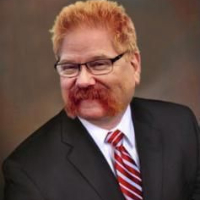 Pleasant Ridge Criminal Lawyers, Michigan
Pleasant Ridge Criminal Lawyers, Michigan
Sponsored Law Firm
-
 x
x

Click For More Info:
-
Goldman & Associates
615 Griswold St. Suite 1325 Detroit, MI 48226» view mapCriminal Over 30 Years Experience.
Accessibility, responsiveness, and personal commitment is our approach to client representation.
800-797-8031
Sponsored Lawyers
1-10 of 38 matches
Civil & Human Rights, Criminal, Employment, Accident & Injury, Business
Co-Counsel on the largest police misconduct verdict in Michigan history and the largest verdict in Michigan this year! On November 3, 2016, a jury in the United States District Court in the Eastern District of Michigan returned a $36,600,000 against Genesee County Deputies for using excessive force against a man arrested for drunken driving. Click the link below for details. This is one of many seven figure verdicts and settlements that I have obtained for my clients in civil rights and personal injury cases. http://www.freep.com/story/news/local/michigan/2016/11/06/jury-awards-36m-verdict-genesee-county-police-brutality-case/93287248/ In addition to civil rights cases, I also specialize in working with small businesses. Prior to becoming an attorney I owned and operated a nightclub in Hamtramck. This experience has led to a lifelong interest in the formation and operation of small businesses. My services are unique because I understand how small business owners need personal and affordable attention from their attorneys. Our legal services include civil rights litigation, business services, commercial litigation, auto accidents, personal injury, criminal law and medical marijuana consulting. Call me at 248-251-0001 to discuss your case today.
(more)Divorce & Family Law, Estate, Criminal
I have been in private practice as an attorney for 22 years. I can assist with all legal needs from criminal, family, bankruptcy, social security and more. With nearly three decades of practicing law in Michigan, our team of expert attorneys has distinguished itself as a top firm in the state. We are guided by three fundamental principles: a commitment to personalized legal advocacy, a dedication to truth, and an unyielding pursuit of our clients’ desired outcomes. At the Whitaker-Payton Justice Center, we believe that your future matters, and we are here to ensure that you get the justice you deserve.
(more)Criminal, Divorce & Family Law, Traffic
David Poulton is a practicing lawyer in the state of Michigan. He received his J.D from Michigan State University College of Law in 1998.
(more)Criminal
Gary R. Lazar is a practicing lawyer in the state of Michigan handling criminal defense matters.
(more)


 Akiva Goldman Detroit, MI
Akiva Goldman Detroit, MI AboutGoldman & Associates
AboutGoldman & Associates Practice AreasExpertise
Practice AreasExpertise




